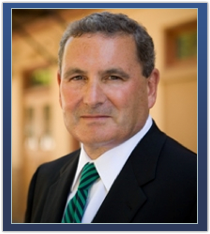The story of doctor Sylvia Hofstetter, in what has been characterized as “the largest drug network unearthed so far in East Tennessee,” is unfolding publicly this year, although the investigation certainly traces back several years. I have no personal knowledge of this case, or of Dr. Sylvia Hofstetter, having only read about Dr. Hofstsetter’s case in the media. As I understand it from news reports, Dr. Hofstetter was indicted earlier this year and is facing trial next year for prescription drug charges arising out of a large “pill mill operation” in Knowxville and Lenoir City. The facts as alleged certainly look bad for doctor Sylvia Hofstetter and her colleagues, but they always do, even in the cases that turn out better in the end.
At least one doctor was viewed favorably
What caught my eye was the testimony of an FBI Special Agent, who reportedly testified that Dr. Sylvia Hofstetter let one doctor “go” because that doctor spent more time with patients and wouldn’t always write a prescription for a narcotic. One implication from the Special Agent’s testimony is that this doctor was exercising clinical judgment, which suggests he was practicing medicine, and not intentionally dealing (i.e., diverting) drugs. Even if you assume the factual allegations are true with respect to Dr. Hofstetter and the others, this doctor is situated differently, even in the eyes of the FBI Special Agent. The doctor is not identified by name and I wonder what happened to him. Most often, every physician in the clinic is indicted, but was this doctor spared from indictment?
A “legitimate medical purpose,” or intentionally dealing drugs?
If this doctor was indicted, the issue for him will likely be whether he was practicing medicine or intentionally dealing drugs, and it is further likely his case will become entangled in the quarrel between what constitutes “prescribing without a legitimate medical purpose” (in my opinion, this agency rule is often misused by the DEA), and what constitutes the “knowing or intentional distribution of a controlled substance outside the course of professional practice,” which is the statutory crime legislated by Congress in the Controlled Substances Act, a quarrel I have discussed elsewhere on this website, and will not repeat again here today.

